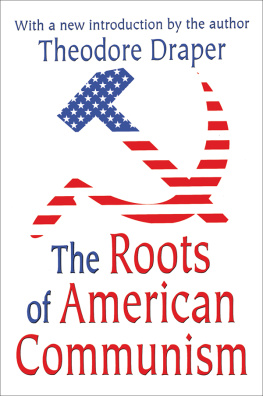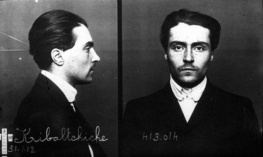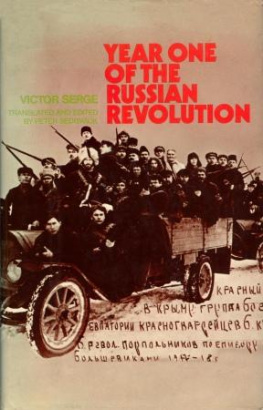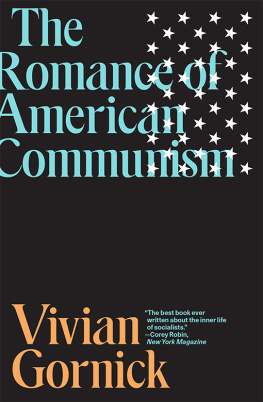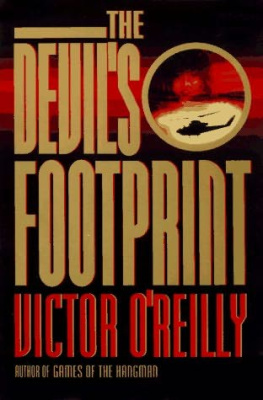1.
THE Roots of American Communism was first published in 1957, American Communism and Soviet Russia in 1960. After almost half a century, no one has attempted to go over the same ground again. Not that they have been ignored. On the contrary, they have been attacked again and again. All the trouble came from a sentence or two at the conclusion of each volume. In The Roots of American Communism I had written: It was transformed from a new expression of American radicalism to the American appendage of a Russian revolutionary power. And in American Communism and Soviet Russia, I ended with these words: Each generation had to discover for itself in its own way that, even at the price of virtually committing political suicide, American Communism would continue above all to serve the interests of Soviet Russia. Nothing else in the two books has been challenged. But these two sentences, which came at the very end of each volume, set off a storm of abuse.
When I wrote my two books, I did not have any of the material that has come out in the last few years. My material came out almost entirely from the Communist movement itself. Most of the material on the Communist movement a half-century ago were products of right wing propagandists of no use to me. I actually set out to write a rather typical academic book that told the story calmly and consecutively. I did not start with my last sentences in mind. In fact, the entire subject was a voyage of discovery for me. I knew little or nothing about the first ten years when I started, and I had to find my way slowly and gradually. It took time for me to realize that the first ten years were the formative period and that the lines of development were going to be repeated in later years. Despite all the differences in context, the expulsion of Earl Browder in 1945 resembled the expulsion of Jay Lovestone in 1929, though the first took place in the United States and the second in Moscow.
As another example, I discovered the primary role of Louis C. Fraina (later known as Lewis Corey) in the origins of the party. No one had thought of him for years. He had been wiped out of the partys memory. I resurrected him in The Roots of American Communism as if from the dead. Thirty-eight years later, Paul M. Buhle put out a biography of Fraina/Corey called A Dreamers Paradise Lost. He corrected me in one detailthat Fraina had been born in 1892, not, as I had had it, in 1894, which I had based on material from Frainas wife. But apart from some inconsequential pinpricks, Buhle admitted that his account owed much to Theodore Drapers research in The Roots of American Communism. Buhles book tells the entire story of Fraina/Corey, which I could not do owing to the time span, but it is an example of later work partially based on my own much earlier research.
Another book that went beyond my work was Ted Morgans A Covert Life, the biography of Jay Lovestone. I told Lovestones story until his expulsion in 1929; Morgan had the advantage of using Lovestones papers at the Hoover Institution in Stanford, California. Our versions of Lovestones career in the Communist Party are quite similar, but Morgan was able to tell Lovestones entire story.
Still another work that fills out my partial treatment is Earl Browder by James G. Ryan (University of Alabama Press, 1997). Ryan used my material but, forty years later, was able to fill out the entire story, including Browders expulsion from the party.
Of the greatest importance are the two volumes of Soviet and Comintern material in The Secret World of American Communism by Harvey Klehr, John Earl Haynes, and Fridrikh Igorevich Firsov and The Soviet World of American Communism by Harvey Klehr, John Earl Haynes, and Kyrill M. Anderson (Yale University Press, 1995 and 1998). They contain messages to and from the Comintern that finally and conclusively show that American party became the American appendage of a Russian revolutionary power. If I had had this material almost forty years earlier, there could have been no doubt about my conclusion, to which I had come from purely American sources. This archival material of the twists and turns of the Comintern and its repercussions on the American party are decisive in the question of where the real power over the American party was located.
But one book has impressed me as worth special mention. It was published in 1990 as Dorothy Healey Remembers: A Life in the American Communist Party (Oxford University Press, reprinted by the University of Illinois Press in 1993 as California Red by Dorothy Ray Healey and Maurice Isserman. Dorothy was born Dorothy Harriet Rosenblum in 1914. Healey was the name of her second husband. Her father was an orthodox Jew. She joined the Young Communist League in December 1928, less than a year before the Wall Street crash, at the age of fourteen. She became a young, believing rank and filer. Gradually she rose in the ranks. She started out as a YCL organizer. She took part in various trade union organizing drives in California. She accepted the Nazi Soviet pact in August 1939.
Her first open complaint in the party came over the dissolution of the party in 1944. The following year she went to the national convention that deposed Browder and felt vindicated. But for all my misgivings, once the convention was over I immediately began to retreat into the mythic concept of the Party leadership as all seeing, all knowing people who were very different from ordinary mortals like myself.
In October 1945 she was made org. sec. (organization secretary) of the California party, a member of the cadre. She went underground in Los Angeles for six months in October 1948 to avoid a subpoena by a federal grand jury investigating alleged subversive activities. While in the underground, she became the top party leader in Los Angeles. Finally, she was hit by two shocking events. The first was Khrushchevs secret speech on Stalins crimes in 1956. Dorothy says that she cried for several hours. The second was the execution of Imre Nagy, the leader of the Hungarian Communists, in 1958. Ironically, she approved of the Soviets in Hungary but could not swallow the execution of the Hungarian Communist leader.


